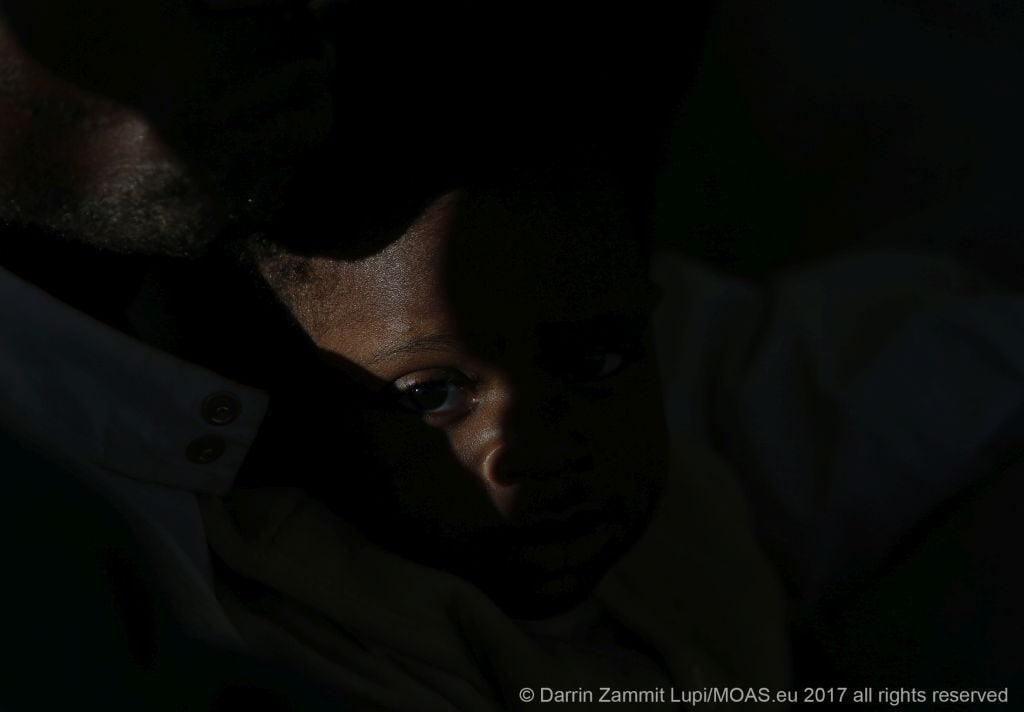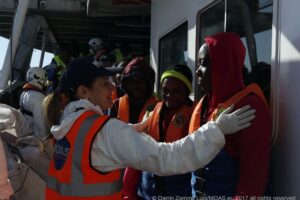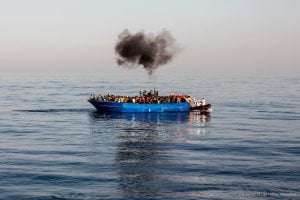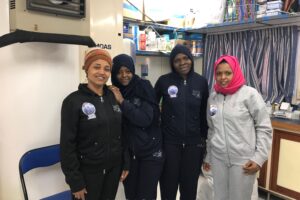For months, newspapers and TV programs have been focusing on rescue NGOs operating at sea, which they are suggesting are suspicious organisations with unclear aims and funds. Those same NGOs trying to mitigate the dramatically high number of casualties at sea are seen as acting as a pull-factor for migration.
In a nutshell, the media infers that NGOs increase the rate of people leaving from Libya through activities funded by suspicious means.
This kind of accusations and speculations are a heavy burden on the shoulders of those who on a daily basis devote their time to the fundamental mission of saving human lives.
While the media uproar was at its climax, during the Easter weekend our crew was working ceaselessly for more than 24 hours in order to assist and bring to safety as many people as possible.
Meanwhile, those who had instilled doubts and hatched plots about the migratory phenomenon were comfortably sitting on their sofas.
Since MOAS’ inception in 2014 as the first private NGO operating at sea, we have always cooperated with official authorities for each rescue activity, ranging from sharing information collected with our equipment to sharing data about those rescued and disembarking in the port identified for us. Our ultimate goal has always been to prevent casualties at sea.
My family has paved the way for an active participation of civil society in this crisis. Journalists, humanitarian organisations and citizens used to focus only on the ports where migrants were disembarked after being rescued by the Italian Coast Guard and Mare Nostrum, the only entities operating at sea.
We decided to act because we needed to give our contribution to rescue human lives following an idea which first reached our heart, secondly our mind and then our wallet. We provided a real answer to Pope Francis’ call to avoid becoming used to people dying at sea. We have invested our money, our time and expertise to help those who risk their lives while crossing the Mediterranean.
Since its first mission, MOAS has had an immediate impact in terms of the lives we saved, and we have inspired other organisations to operate at sea and rescue vessels in distress.
Nevertheless, solidarity and rescue at sea are now blamed and our credibility has been put at stake -if not jeopardized- by the media uproar at Italian and international level.
NGOs have had to attend Parliamentary hearings – in front of the Schengen and Defence Committees – together with representatives of the Italian Coast Guard and Navy, as well as relevant judicial authorities. Fact-finding surveys go on as well as official statements.

But where are the migrants?
Who spoke with them? What do we know about these people? Did they start the journey because of us operating at sea?
Or maybe they had no idea of what they would suffer when crossing the desert and the sea.
Why is their voice not relevant?
Why has nobody asked them to tell their story? They have experienced everything first hand and their bodies bear witness to this terrible journey.
Why do we talk about them, but we never listen to their voice?
Migrants represent the most fragile part of our society. They have no possessions, they are running from violence we can barely imagine, from conflicts they couldn’t avoid or famines they cannot solve. Migrants are vulnerable people who often survived torture or severe trauma and are looking for a future far from bombings, weapons and death.
But they are people.
And so they have rights which too often are denied and ignored.
I wonder if those pointing their finger against us with no real evidence have ever talked to a migrant who arrives after a desperate journey. I wonder if they have ever seen a mother fleeing war to save her kids. I wonder why nobody is interested in their voice: the voice the invisible people.
MOAS has devoted and still devotes everything in its daily commitment to them.
Each rescue operation has been for us an occasion to discover again our humanity, to heal wounds, listen to stories and give comfort to those who have lost everything but hope.
Their stories and the feeling that we cannot give up keep our motivation high. As long as people are forced to risk their life at sea with no safe and legal alternatives, we will be there to rescue them, and to spread and safeguard their voice and their story together with our own humanity.



